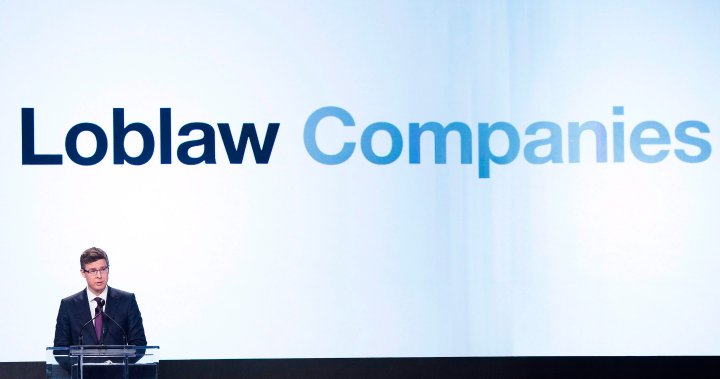The fast-growing boycott movement against Loblaw over high food prices is seeking to target more than just grocery stores to impact the corporation’s bottom line. Loblaw Companies Ltd. is the parent company of nearly two dozen store brands spanning various industries, including food, pharmacies, fashion, beauty, and financial services. The movement, which began in May, aims to boycott not only Loblaw’s grocery division but also its PC Financial products, online delivery service, fashion brand, gas station partnership, and more. The vast network of Loblaw raises a challenge for the boycott movement, but organizers are determined to rise to the occasion by encouraging Canadians to take action, such as closing their PC bank accounts and switching prescriptions to local pharmacists.
In addition to its grocery division, Loblaw oversees a variety of store brands, including Freshmart, T&T Supermarket, Zehrs, Valu-Mart, Provigo, and many others. The company also acquired Shoppers Drug Mart in 2014, which operates over 1,300 locations and offers various health and wellness services. Loblaw also operates a prepaid wireless cellular service, PC Mobile, and owns Maple Leaf Gardens, now the Mattamy Athletic Centre, which houses the flagship Loblaws store. Choice Properties, Loblaw’s real estate investment trust, owns and operates various properties across the country, many of which are anchored by its grocery stores. While many Canadians may find it difficult to completely boycott Loblaw due to limited alternatives for groceries and other services in some communities, organizers are still encouraging participation by connecting individuals to independent grocers through AltGrocery.ca.
Industry Minister Francois-Philippe Champagne has acknowledged the challenge of attracting foreign grocers to Canada to increase competition due to a lack of lease space. The r/loblawsisoutofcontrol boycott movement aims to remind Canadians of the dominance of large corporate grocers like Loblaw, Metro, and Empire, which have created an “economy of scale” targeting customer convenience. Despite Loblaw’s diverse portfolio, the majority of its revenue comes from its grocery stores, with food retail accounting for 70% of its retail sales. However, its drug and pharmacy retail sector has shown consistent growth, driving profits higher due to demand for health and beauty products. Loblaw’s PC Financial services also experienced significant revenue growth last year, indicating a diversification of its revenue streams.
Organizers of the boycott movement are providing Canadians with alternatives to show solidarity if they are unable to completely untangle themselves from Loblaw’s services. These alternatives include writing to local members of Parliament to voice concerns over rising prices at corporate grocers, donating to local food banks, and spreading news about the boycott on social media. By encouraging solidarity among Canadians, the movement aims to continue to grow and put pressure on Loblaw to address high food prices. Despite the convenience and accessibility of Loblaw stores due to their wide presence in urban environments, organizers believe that the boycott will have an impact, even if short-lived. As the movement gains momentum, it is becoming increasingly clear that consumers are looking for alternatives and are willing to take action to demand fair prices and competition in the grocery industry.
Overall, the boycott movement against Loblaw highlights the need for increased competition and consumer choice in the grocery industry. While Loblaw’s expansive network and diverse brand portfolio present challenges to the boycott movement, organizers are determined to continue to push for change. By encouraging Canadians to take action and show solidarity, the movement aims to pressure Loblaw to address high food prices and promote fair competition in the market. As the movement grows and gains support on social media and through other channels, it is becoming increasingly clear that consumers are willing to take a stand and demand transparency and fairness from large corporate grocers like Loblaw.













